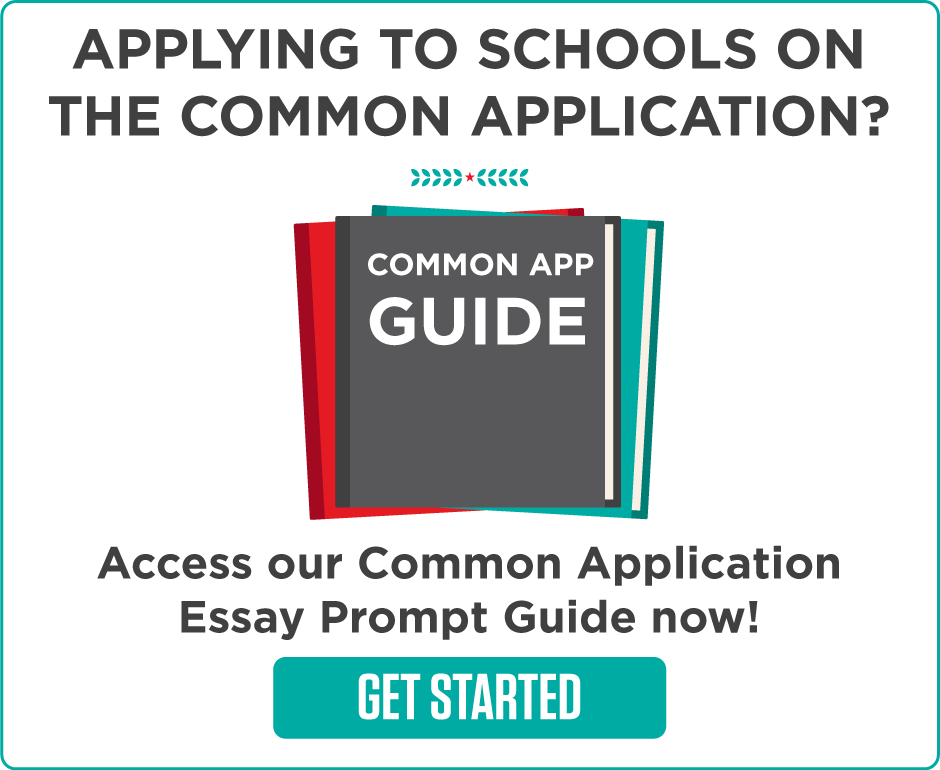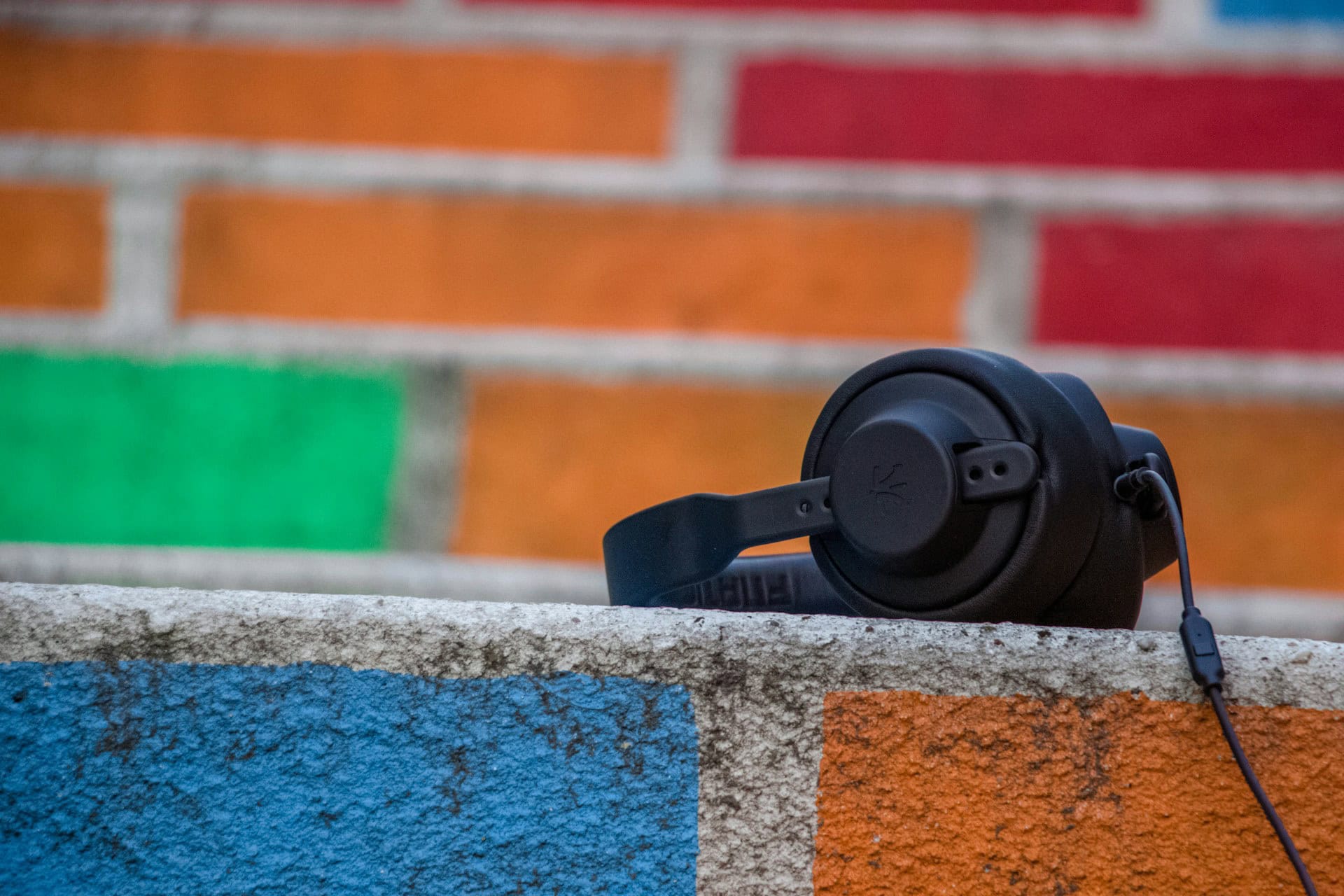

How to Write The Common App’s New “Optional” COVID-19 Essay

Stacey Brook, Founder and Chief Advisor
Since the start of the pandemic, the question we have most frequently been asked by college applicants is, “Should I write about the Coronavirus in my college essay?” The Common Application has provided what we interpret to be a direct response to that query in the form of a brand new optional essay prompt. The prompt, which has a maximum word count of 250 and can be found in the Additional Information section of the Common App reads:
“Community disruptions such as COVID-19 and natural disasters can have deep and long-lasting impacts. If you need it, this space is yours to describe those impacts. Colleges care about the effects on your health and well-being, safety, family circumstances, future plans and education, including access to reliable technology and quiet study spaces.”
Of course, the release of this new prompt has generated new questions about how students can make the most of their essays and present themselves authentically and holistically on their 2020-21 applications. Below, we answer your burning questions and dispense tips and tricks to help applicants craft sincere and impactful responses to this highly-specific prompt.
Q: What is this question really asking?
A: This prompt does students many favors in its clarity and straightforward nature. Schools want to know how the pandemic has impacted your life and world. Some students will have very obvious ways in which they have been affected by COVID-19 . If you or someone close to you has been afflicted with the virus, this is the space in which to detail the experience and related challenges. Are you immunocompromised and in heightened danger of contracting the virus? Do you have a parent who works in the healthcare system and who is not living with your family temporarily to protect you? Has someone in your family lost their job because of the economic impact of quarantine? What about your ability to access educational instruction and materials? Is wi-fi hard to come by at home? Do you live in an apartment with very little privacy and space for concentration? Be honest about how your life has changed because of the pandemic and resultant quarantine. Admissions knows that many students have been stretched thin during these challenging times and they want as much context as possible to help them evaluate your application in a fair light.
For students who have not faced the circumstances above, keep a few things in mind when approaching this prompt. It goes without saying that all students’ lives and modes of operation have been impacted by the pandemic. What you want to avoid in your response is elaboration on the obvious. Pretty much all applicants have endured the challenges of transitioning from in-person to online learning. They have all adapted in one way or another to the shifted schedules, truncated curriculums and imperfect grading metrics. What admissions wants to know is, how did you respond to these enormous shifts in learning and lifestyle?
Did you take the initiative to form a study group with five of your classmates to review class material for an extra hour each day? Have you started to deliver groceries to the elderly and other at-risk populations in your community in place of your usual in-person volunteer work at a nursing home? If you are an athlete, what does the abrupt end of your sports season mean to you? How have you been working on your own to stay in shape and mitigate that sense of loss? What have you committed yourself to accomplishing off the court or field instead? There are many opportunities to showcase your resilience and determination in the face of one of the greatest challenges of our lifetimes. Show admissions that you haven’t given up and that COVID has not dampened your will to succeed.
Q: Does this mean I can’t write about COVID-19 in my personal statement?
A: Yes. And no. It certainly should not be the core focus for most students. Before the pandemic, you spent sixteen or seventeen years on this earth engaging in meaningful activities, following your curiosity and building yourself into the complex and ambitious human you are today. Don’t allow yourself to be defined by this crisis. You are, and have always been, so much more than just a person who has lived through an epidemic. (Not that living through an epidemic isn’t impressive.) Of course, some students will have experiences during quarantine that are truly worth the personal statement’s full allotment of 650 words. And inserting a line or two in your essay about how your actions during quarantine are reflective of your core characteristics and goals could be very powerful. But it is important to keep in mind that you are trying to distinguish yourself from similarly qualified applicants, and one of the things you definitely all have in common is having weathered the challenges of this epidemic. So unless you have a truly unique take on COVID-19 and how it has impacted your life, think about who you have been, not just since March, but in all the months that have come before quarantine. When your friends and family think about what makes you you , what qualities might they highlight? What are the accomplishments and challenges that have driven your ambitions? Who do you want to be when the epidemic finally ends and we settle into a new normal? These are the kinds of messages you should try to convey in your personal statement. And with the addition of the new prompt, the Common App has made it easy for you to separate stories about COVID-19 from everything else you’ve lived through and worked for.
Q: Is this prompt really optional?
A: We here at CEA believe that, with very few exceptions, almost no prompts are truly optional. Why would you sacrifice another valuable opportunity to speak to admissions in your own voice and relay your experiences, motivations and aspirations? This new prompt is especially valuable in the current climate. It’s hard to believe there is a student out there that won’t have something to say about how COVID-19 has impacted their lives. Additionally, as mentioned above, writing about the pandemic in this space frees you up to relay something that represents you more completely in your personal statement. Plus, once you start drafting, you’ll find that 250 words isn’t very many words at all. We guarantee you will fill up that space in no time, and any information you are able to share with admissions about this time in your life will only help them better understand how you can be an asset on campus in times of crisis and otherwise.

Want free stuff?
We thought so. Sign up for free instructional videos, guides, worksheets and more!

One-On-One Advising
Common App Essay Prompt Guide

Supplemental Essay Prompt Guide
- YouTube Tutorials
Contact us for information on rates and more!
- I am a * Student Parent Potential Partner School Counselor Private College Counselor
- Name * First Last
- Phone Type Mobile Landline
- Street Address
- Address City State / Province / Region Afghanistan Albania Algeria American Samoa Andorra Angola Anguilla Antarctica Antigua and Barbuda Argentina Armenia Aruba Australia Austria Azerbaijan Bahamas Bahrain Bangladesh Barbados Belarus Belgium Belize Benin Bermuda Bhutan Bolivia Bonaire, Sint Eustatius and Saba Bosnia and Herzegovina Botswana Bouvet Island Brazil British Indian Ocean Territory Brunei Darussalam Bulgaria Burkina Faso Burundi Cabo Verde Cambodia Cameroon Canada Cayman Islands Central African Republic Chad Chile China Christmas Island Cocos Islands Colombia Comoros Congo Congo, Democratic Republic of the Cook Islands Costa Rica Croatia Cuba Curaçao Cyprus Czechia Côte d'Ivoire Denmark Djibouti Dominica Dominican Republic Ecuador Egypt El Salvador Equatorial Guinea Eritrea Estonia Eswatini Ethiopia Falkland Islands Faroe Islands Fiji Finland France French Guiana French Polynesia French Southern Territories Gabon Gambia Georgia Germany Ghana Gibraltar Greece Greenland Grenada Guadeloupe Guam Guatemala Guernsey Guinea Guinea-Bissau Guyana Haiti Heard Island and McDonald Islands Holy See Honduras Hong Kong Hungary Iceland India Indonesia Iran Iraq Ireland Isle of Man Israel Italy Jamaica Japan Jersey Jordan Kazakhstan Kenya Kiribati Korea, Democratic People's Republic of Korea, Republic of Kuwait Kyrgyzstan Lao People's Democratic Republic Latvia Lebanon Lesotho Liberia Libya Liechtenstein Lithuania Luxembourg Macao Madagascar Malawi Malaysia Maldives Mali Malta Marshall Islands Martinique Mauritania Mauritius Mayotte Mexico Micronesia Moldova Monaco Mongolia Montenegro Montserrat Morocco Mozambique Myanmar Namibia Nauru Nepal Netherlands New Caledonia New Zealand Nicaragua Niger Nigeria Niue Norfolk Island North Macedonia Northern Mariana Islands Norway Oman Pakistan Palau Palestine, State of Panama Papua New Guinea Paraguay Peru Philippines Pitcairn Poland Portugal Puerto Rico Qatar Romania Russian Federation Rwanda Réunion Saint Barthélemy Saint Helena, Ascension and Tristan da Cunha Saint Kitts and Nevis Saint Lucia Saint Martin Saint Pierre and Miquelon Saint Vincent and the Grenadines Samoa San Marino Sao Tome and Principe Saudi Arabia Senegal Serbia Seychelles Sierra Leone Singapore Sint Maarten Slovakia Slovenia Solomon Islands Somalia South Africa South Georgia and the South Sandwich Islands South Sudan Spain Sri Lanka Sudan Suriname Svalbard and Jan Mayen Sweden Switzerland Syria Arab Republic Taiwan Tajikistan Tanzania, the United Republic of Thailand Timor-Leste Togo Tokelau Tonga Trinidad and Tobago Tunisia Turkmenistan Turks and Caicos Islands Tuvalu Türkiye US Minor Outlying Islands Uganda Ukraine United Arab Emirates United Kingdom United States Uruguay Uzbekistan Vanuatu Venezuela Viet Nam Virgin Islands, British Virgin Islands, U.S. Wallis and Futuna Western Sahara Yemen Zambia Zimbabwe Åland Islands Country
- Which best describes you (or your child)? High school senior High school junior College student College grad Other
- How did you find CEA? Internet Search New York Times Guidance counselor/school Social Media YouTube Friend Special Event Delehey College Consulting Other
- Common App and Coalition Essays
- Supplemental Essays
- University of California Essays
- University of Texas Essays
- Resume Review
- Post-Grad Essays
- Specialized Services
- Waitlist Letters
- Private School Essays
- General College Counseling
- School list with priorities noted:
- Anything else we should know?
- Name This field is for validation purposes and should be left unchanged.
- Our Approach & Team
- Undergraduate Testimonials
- Postgraduate Testimonials
- Where Our Students Get In
- CEA Gives Back
- Undergraduate Admissions
- Graduate Admissions
- Private School Admissions
- International Student Admissions
- Common App Essay Guide
- Supplemental Essay Guide
- Coalition App Guide
- The CEA Podcast
- Admissions Stats
- Notification Trackers
- Deadline Databases
- College Essay Examples
- Academy and Worksheets
- Waitlist Guides
- Get Started
What are your chances of acceptance?
Calculate for all schools, your chance of acceptance.
Your chancing factors
Extracurriculars.
How to Respond to the Common App COVID-19 Question (+ Examples)
What’s covered:, what is the “additional information” section, what is the covid-19 and community disruption question, should you respond to the community disruption question.
- How to Respond and How Not to Respond
Where to Get Your Essays Edited
The “Additional Information” section of the Common App has a new question: have you suffered any long-term impacts from COVID or natural disasters? The Common App notes this question is optional, but many students might be unsure whether filling out this question will give them an advantage over other applicants (like most “optional” essay prompts).
Here are some tips on how to navigate the prompt.
The “Additional Information” section is a place to provide necessary context that is not already present in your application. The question asks:
“Do you wish to provide details of circumstances or qualifications not reflected in the application?”
For example, if your grades dropped due to an extenuating circumstance, or if you self-studied for your AP exams, those would be worth mentioning here in this section.
Keep in mind though that the “Additional Information” section is completely optional: you will not be penalized for skipping it. While most optional essay prompts are in fact necessary to stand out in a crowded admissions field, this section is meant more for circumstances which do not apply to everyone. That’s why we recommend skipping it if you don’t have something to say — adding an extra essay or overstating adversity can backfire on your application.
The community disruption question states:
Community disruptions such as COVID-19 and natural disasters can have deep and long-lasting impacts. If you need it, this space is yours to describe those impacts. Colleges care about the effects on your health and well-being, safety, family circumstances, future plans, and education, including access to reliable technology and quiet study spaces. For more information, check out our COVID-19 FAQ .
Notice the comparison between COVID and natural disasters: this is not an essay that everyone is expected to fill out. Instead, think of this as an extension of the original “Additional Information” prompt that is meant to filter in answers related to these subjects.
Admissions officers are human, and they will genuinely want to know if you struggled with those events. This prompt is meant as a way for students to provide context so they are not adversely affected in the admissions process.
The linked FAQ specifically states: “the question is not intended to be an extra essay.” The examples they give that would justify a response include loss of family employment, lack of internet access, or a related shift in your career interests.
Here is the full list of examples from the Common App of circumstances that could warrant a response:
- Illness or loss within your family or support network
- Employment or housing disruptions within your family
- Food insecurity
- Toll on mental and emotional health
- New obligations such as part-time work or care for siblings or family members
- Availability of computer or internet access required to continue your studies
- Access to a safe and quiet study space
- A new direction for your major or career interests
In short, you should not use this space to describe things experienced by the general public or everyone at your school (your counselor’s recommendation will let colleges know of things like school closures or grading changes). This is a place to acknowledge how COVID or other disruptions negatively impacted you relative to other students .
If you feel your application would be incomplete without this context, then you should fill out the section.
How to Respond (and How Not to Respond) to the Community Disruption Question
How to respond.
The most important thing to remember is that this is not an essay prompt. Your response (as with the “Additional Information” question) should be factual and to the point. Avoid the narrative style you would use for normal essays and treat it more as a footnote to your application.
Also, double check and make sure the information you provide is not already listed in other parts of your application, like your personal statement or extracurriculars list. If you want to give a more personal account than the format allows, then consider using the story in your personal statement or supplementals.
And lastly, even though this is not a creative writing sample, make sure your answer is as polished as the other parts of your application — use complete sentences and avoid careless grammatical errors. You want to make sure this response, like everything else in your application, is reflective of you as an applicant.
Here are some examples:
Example 1: In 2020 my school district shut down and switched to remote learning. However, living in a rural area on the outskirts of my school district, I did not have access to stable internet for Zoom classes. My teachers were helpful in providing accommodations, but I ultimately decided to take a reduced courseload for that year. Though I will still be able to graduate on time, I have only had room in my schedule for required courses and have not been able to take as many electives as I would have liked.
Example 2: In October 2022 my town was flooded by Hurricane Ian and my home largely damaged. My family moved in with relatives in North Carolina, which is why I went to school there for the rest of the semester. Not all of my classes were transferable, so I did not finish with any honors or AP courses. I ultimately suffered worse grades for the school year.
How Not to Respond
Do not use this space to discuss common disruptions faced by many other students — like missing out on extracurriculars, transitioning to online classes, or experiencing lockdowns. Most relevant changes, like new grading policies, will be explained by your counselor in their part of the application.
Also avoid playing up a minor impact, like your grades dropping slightly or missing out on an extracurricular, as it can make your response come across as relatively privileged.
In short, just remember that this space is for exceptional or unusual circumstances — misusing it will be seen as inappropriate.
Do you want feedback on your college essays? While the Common App COVID question isn’t a traditional essay, you may still want feedback on it or your other essays. After rereading your essays countless times, it can be difficult to evaluate your writing objectively. That’s why we created our free Peer Essay Review tool , where you can get a free review of your essay from another student. You can also improve your own writing skills by reviewing other students’ essays.
If you want a college admissions expert to review your essay, advisors on CollegeVine have helped students refine their writing and submit successful applications to top schools. Find the right advisor for you to improve your chances of getting into your dream school!
Related CollegeVine Blog Posts

More From Forbes
A guide to writing the covid-19 essay for the common app.
- Share to Facebook
- Share to Twitter
- Share to Linkedin
Students can use the Common App's new Covid-19 essay to expand on their experiences during the ... [+] pandemic.
Covid-19 has heavily impacted students applying to colleges in this application cycle. High schools have gone virtual, extracurricular activities have been canceled and family situations might have changed. Having recognized this, the Common App added a new optional 250-word essay that will give universities a chance to understand the atypical high school experience students have had. The prompt will be:
“Community disruptions such as COVID-19 and natural disasters can have deep and long-lasting impacts. If you need it, this space is yours to describe those impacts. Colleges care about the effects on your health and well-being, safety, family circumstances, future plans, and education, including access to reliable technology and quiet study spaces.”
Should I Write About The Coronavirus Pandemic?
For many high schoolers, the pandemic will have had a lasting impact on their education and everyday lives. Some students might have had a negative experience: a parent laid off or furloughed, limited access to online classes or a family member (or the student) having fallen ill from the virus.
Other students might have had the opposite experience. Even though they might have undergone a few negative events or stressful times, they might have learned something new, started a new project or gained a new perspective that changed their future major or career choice.
If you fit into either of these categories, writing the optional essay might be a good idea.
Remember, the admission officers have also been dealing with the crisis and understand the situation students are going through. They are well aware that the AP exams were administered remotely, SAT/ACT test dates were canceled and numerous schools transitioned to a virtual learning model. There is likely no need to reiterate this in an essay unless there was a direct impact on an aspect of your application.
WWE SmackDown Results, Winners And Grades As The Bloodline Destroys Paul Heyman
Paige vanzant power slap results: winner and knockdown highlights, martin mull dead: the ‘fernwood 2 night’ and ‘roseanne’ star was 80, what not to write .
As with every college essay you write, it is important to think about the tone and word choice. You want to remain sensitive to the plight of other students during this global crisis. While every student has likely been affected by the pandemic, the level of impact will vary greatly. For some, classes moved online, but life remained more or less the same. For these types of students, it might not be a strategic move to write about the coronavirus if you don’t have anything meaningful, unique or personal to say. If you only have a limited time to impress the admission officer, you want to ensure that each word is strategically thought out and showcases a new aspect of your personality.
Using this space as a time to complain about how you weren’t able to go to the beach, see friends or eat out could be seen as you flaunting your privilege. Careful consideration of how you portray yourself will be key.
Nearly every student has had an activity or event canceled. It likely won’t be a good use of your word count lamenting on the missed opportunities. Instead, it would be more illuminating to talk about how you remained flexible and pivoted to other learning opportunities.
How To Write The Covid-19 Essay
The Covid-19 essay was introduced so universities could gain a better understanding of how their applicants have had their lives and education disrupted due to the pandemic. You’ll want to give the admission officers context to understand your experiences better.
Here are some examples of how to write this optional essay.
- Outline any extenuating circumstances related to Covid-19. Some students might find themselves crammed in a small apartment or home with their entire family. This disruptive environment might have made it difficult for the student to concentrate on their classes. Some students might be required to care for younger siblings during the day. In many areas of the country, lack of access to high-speed internet or smart devices meant that students couldn’t participate in online learning. Now is the time to share those details.
- Include the impact. Ultimately, this essay is about you. Things likely happened to family members, friends or your community, but you need to show how it altered your life specifically.
- Provide specific details. Give the admission officers a peek into your everyday life. Including specific details can help make your story come alive. For example, don’t just say that it was hard dealing with the emotional trauma of seeing friends and family fall ill. Instead, be specific and talk about how your friend was diagnosed with Covid-19 and had to be hospitalized. Seeing the long-term effects caused you to take the pandemic much more seriously and moved you to take action. Perhaps you were inspired to start a nonprofit that makes masks or to help your neighbors through this difficult time.
Covid-19 Essay for School Counselors
It’s not just students who will get to submit an additional statement regarding the impact of the coronavirus: Counselors will also get a chance to submit a 500-word essay. Their prompt will be:
Your school may have made adjustments due to community disruptions such as COVID–19 or natural disasters. If you have not already addressed those changes in your uploaded school profile or elsewhere, you can elaborate here. Colleges are especially interested in understanding changes to:
- Grading scales and policies
- Graduation requirements
- Instructional methods
- Schedules and course offerings
- Testing requirements
- Your academic calendar
- Other extenuating circumstances
The counselor’s response will populate to all the applications of students from the high school. They will cover any school or district policies that have impacted students. No specific student details will be included.
Students can ask to see a copy of this statement so they know what information has already been shared with colleges. For example, if the school states that classes went virtual starting in March, you don’t need to repeat that in your Covid-19 essay.
Should I Write About The Covid-19 In My Personal Statement?
The world before Covid-19 might seem like a distant memory, but you did spend more than 15 years engaging in a multitude of meaningful activities and developing your passions. It’s important to define yourself from more than just the coronavirus crisis. You likely will want to spend the personal statement distinguishing yourself from other applicants. With the Covid-19 optional essay and the additional information section, you should have plenty of space to talk about how you’ve changed—for better or for worse—due to the pandemic. Use the personal statement to talk about who you were before quarantining.
- Editorial Standards
- Reprints & Permissions
Are you seeking one-on-one college counseling and/or essay support? Limited spots are now available. Click here to learn more.
How to Answer the COVID-19 Question on the Common App
August 21, 2022

With COVID-19 having been an omnipresent force in all of our lives, including the entire educational universe, it should come as little surprise that the virus even managed to infiltrate the college application itself two years ago. This will remain the case as the Class of 2023 applies to college this fall. As of August 2022, over 1,000,000 Americans have died from COVID-19, and many have felt the economic impact of inflation and supply chain challenges. In addition to feeling the health-related and economic consequences, American teenagers had to deal with interruptions to in-person learning, the cancellation of long-awaited events and milestones, and an unnatural period of social isolation.
In an acknowledgement that the Class of 2023 has universally been impacted by the coronavirus crisis, the Common Application, which is used by over one million students each year to apply to one of 1,000+ member institutions, announced that the following COVID-19 prompts, introduced last cycle, will remain part of the application in 2022-23.
1) A 250-word optional question for applicants
2) A 500-word question for guidance counselors
Let’s dive in and look at both coronavirus questions in detail and talk about how students may want to approach this offering.
COVID-19 Question for Students on Common App
The prompt, which appears in the Additional Information section of the Common App reads as follows:
Community disruptions such as COVID-19 and natural disasters can have deep and long-lasting impacts. If you need it, this space is yours to describe those impacts. Colleges care about the effects on your health and well-being, safety, family circumstances, future plans, and education, including access to reliable technology and quiet study spaces.
- Do you wish to share anything on this topic? Y/N
- Please use this space to describe how these events have impacted you.
The response length will be limited to 250 words. It does not eat into the 650 words allotted for any other entry to the Additional Information section. The application will also feature an FAQ to help students consider the kinds of impacts they may wish to report, including:
- Illness and loss
- Housing and employment disruptions
- Shifting family obligations
Now that you understand the scope of the question, let’s tackle the first big decision point…
Should I answer the COVID-19 question on the Common App?
Applicants should keep in mind that college admissions officers are not alien beings who just touched down on Earth yesterday. They are human beings who have lived through the pandemic themselves. Therefore they do not need to be introduced to the very nature of the situation. Admissions officers are all fully aware of all of the basic facts pertaining to secondary education. For example, that schools shifted to online instruction in March 2020, that SAT/ACT tests were cancelled, the AP exams were administered remotely, etc.
There is no need to chronicle school-related challenges that were faced by literally every high school student, unless you believe that:
- Your grades were negatively impacted by the shift online.
- Your AP scores were lower because of the lack of instruction/online format.
- Your standardized test results (should you choose to submit them) were negatively impacted by the multiple SAT/ACT cancellations.
If you feel that the disruptions caused by coronavirus negatively impacted what appears on your transcript in any way, you should definitely use this space to explain. If you ended up with all “A”s and “5”s on your AP tests, then there is no need explain the obstacles you faced, unless you feel this communicates something about you (grit, perseverance, etc.).
Of course, if the pandemic impacted you in any personal way—loss of a family member’s job/income, death or serious illness of a family member, or, more tangentially, in the form of anxiety/depression, then you should, without question, use these 250 words to convey the full extent of your suffering.
How Should I Approach the COVID-19 Question?
If you emerged from reading the previous section certain that it is in your best interest to answer the question, the next issue is figuring out how to do so in an effective manner. Unlike with your Common App essay, 250 words does not give you the space with which to tell a complex and personal story in full technicolor. As such, we recommend following these two simple rules:
1) Lead off with the facts
Don’t start with a flowery or literary opening. There is likewise no reason to introduce the coronavirus and explain its broader impact. Did your mother lose her job? Did your grandfather pass away? Was there an uptick in childcare duties for your younger siblings, nieces, nephews, or cousins? Get right to the meat of the story in the first sentence or two.
2) Explain how these changes impacted YOU
Don’t forget to make this response about you . Citing things that happened to your family, friends, or community without explaining how these events made you feel and how they altered your everyday life would not make for an impactful answer. Also, make sure to provide specific details about causation when applicable. For example, don’t just say that dealing with caring for a younger sibling was “hard” or “a distraction.” Instead, be explicit about how that newfound responsibility prevented you from being able to study sufficiently for your AP Chemistry exam.
One additional consideration when pondering how/whether to address the coronavirus question is what the admissions officers will already know about the impact of the crisis on your particular high school. This brings us to the other new section on the Common App…
COVID-19 Question for School Counselors on Common App
Applicants should be fully aware of what is being asked of school counselors in their section of the Common Application as well as—even more importantly—how their counselor answers the question. The prompt for counselors is as follows:
Your school may have made adjustments due to community disruptions such as COVID–19 or natural disasters. If you have not already addressed those changes in your uploaded school profile or elsewhere, you can elaborate here. Colleges are especially interested in understanding changes to:
- Grading scales and policies
- Graduation requirements
- Instructional methods
- Schedules and course offerings
- Testing requirements
- Your academic calendar
- Other extenuating circumstances
Your guidance counselor will have 500 words to address this question. They can also upload additional files or send URLs to pages containing school or district-specific policies. Once a counselor crafts their response, it can be populated into the applications of all students on their caseloads. Nothing personal to your situation will be disclosed by your counselor in this section.
What Students Should Know About the Counselor Question
We encourage students to ask their counselor to see a copy of this statement. Some guidance departments will undoubtedly craft a blanket statement to be used by all counselors. Others will see counselors pen their own descriptions. Seeing this will be helpful to students because you will know what will automatically be communicated to your prospective colleges. For example, if your counselor explains that you were forced to be on virtual instruction for 70% of the 2020-21 school year and that all SAT administrations at your high school were cancelled in the fall, then there is no need for you to repeat that information in your own COVID-19 response.
College Transitions’ Final Thoughts
Every college admissions officer out there already knows a good deal about the COVID-19 pandemic because a) they lived through it themselves and b) your guidance counselor will have provided a summary of how it impacted your high school. The pandemic has victimized everyone on the planet in one way or another—even if it’s “just” injecting increased doses of anxiety, uncertainty, and loneliness into our lives. If you have a personal story to tell, we encourage you to do so. If not, feel free to skip this section in 2022-23.
For advice directly from the Common App, check out this FAQ .
For a look at the main Common App essays, click here .
- Application Strategies
- Navigating the Admissions Process

Andrew Belasco
A licensed counselor and published researcher, Andrew's experience in the field of college admissions and transition spans two decades. He has previously served as a high school counselor, consultant and author for Kaplan Test Prep, and advisor to U.S. Congress, reporting on issues related to college admissions and financial aid.
- 2-Year Colleges
- Best Colleges by Major
- Best Colleges by State
- Big Picture
- Career & Personality Assessment
- College Essay
- College Search/Knowledge
- College Success
- Costs & Financial Aid
- Data Visualizations
- Dental School Admissions
- Extracurricular Activities
- Graduate School Admissions
- High School Success
- High Schools
- Homeschool Resources
- Law School Admissions
- Medical School Admissions
- Online Learning
- Outdoor Adventure
- Private High School Spotlight
- Research Programs
- Summer Program Spotlight
- Summer Programs
- Teacher Tools
- Test Prep Provider Spotlight

“Innovative and invaluable…use this book as your college lifeline.”
— Lynn O'Shaughnessy
Nationally Recognized College Expert
College Planning in Your Inbox
Join our information-packed monthly newsletter.
I am a... Student Student Parent Counselor Educator Other First Name Last Name Email Address Zip Code Area of Interest Business Computer Science Engineering Fine/Performing Arts Humanities Mathematics STEM Pre-Med Psychology Social Studies/Sciences Submit
How to Approach the COVID-19 Question on the Common Application
If you’re using the Common Application this year, you’ll have the option to answer a question about how COVID-19 has influenced your experience. At St. Edward’s, we care about the individual and use a holistic, student-centered review process to consider every application. We want to understand how the circumstances of the past year have influenced your life and your academic record.
It may not be necessary for every student to answer the COVID-19 question. Virtually every student who applies to college this year will have stayed at home for part of the spring, taken classes online instead of at school, and seen extracurricular events cancelled. If these are the principal ways you were affected by the pandemic, you probably don’t need to answer the question. Your admission counselor already knows these were part of your experience, because they were part of every student’s experience.
On the other hand, some students’ lives were upended by the pandemic. Illness, job loss, changing family dynamics and unstable housing situations are all pandemic-related challenges that would influence your academic performance, mental health and perhaps your future plans. It’s important to use the COVID-19 question to explain impacts like this.
As you consider whether to answer the COVID-19 question, ask yourself:
- What would I want my admission counselor to know that is not explained anywhere else in my application?
- Was my family adversely affected beyond what was typical for everyone else in my school or community?
- What information about my experience of the pandemic would put the rest of my application in context?
Here are some circumstances in which we would encourage you to answer the COVID-19 question:
- If you were directly affected by the coronavirus. If someone in your family became ill, or you lost a loved one, we are so sorry. If you feel comfortable, please tell us.
- If your family’s employment or economic status was affected. If a breadwinner in your family lost a job or your housing situation changed, the COVID-19 question is a good place to explain this. If your parents are essential workers, you may have taken on extra duties at home, such as supervising a younger sibling. If you were an essential worker – a grocery store cashier, for example – you probably had to keep working in challenging conditions. This is important information to report.
- If online education was particularly challenging in your household. Please let us know if you did not have the technology or workspace you needed to do school effectively. For instance, perhaps you had to go sit in the library parking lot for four hours every day to do your homework because you didn’t have internet at home.
- If your answer to this question puts your academic record in context. Any of the preceding circumstances could have affected your grades. If your transcript only tells part of the story of the last two school years, and more information would explain your performance, give us that information in your answer to the COVID-19 question. And, if your circumstances were far from ideal, yet you kept up your grades anyway, let us know about that.
- If the pandemic took a disproportionate toll on your mental health. If so, you might include information about the kind of support you are receiving now, and what support you might need when you come to college.
Here are two other thoughts about the question:
If the pandemic has led to an unexpected positive development in your life, you can share that with us. You might have had a transformative experience with your family or a project you picked up during quarantine. COVID-19 may have led to you choosing a major or career field, or reassessing your spiritual philosophy. If the pandemic had that kind of impact on you, you could tell us.
Many students are dealing with frustration and sadness about the cancellation of extracurricular events like sports and debate tournaments and beloved traditions like prom. If you feel called to answer the COVID-19 question by describing one of these losses, we encourage you to reflect on how you may have grown from the experience, rather than simply relating the loss. Please keep in mind that most college applicants will have dealt with similar circumstances, so if you answer this question, keep the focus on how you adapted and how this might influence your future.

OWU Admission Blog
How to create a strong application in the covid-19 era, by the owu admission team.
COVID-19 is the elephant in every Zoom room. Disrupting our lives and routines, the global pandemic has impacted almost every industry, and higher education is no exception. As college students adjust to hybrid classes and wearing masks around campus, admission offices are also adapting.
For this unprecedented admission cycle, colleges and universities recognize that, while many aspects of the application will remain the same, applications will undoubtedly look different than ever before, as students struggle with canceled activities and swift switches to online learning.
To help students and families create the best application possible, we included a few tips and tricks for applying in the COVID-19 era.
1. Do not be afraid to share contextual information in response to the COVID-19 question on the Common Application. This year, the CommonApp added a question where students can discuss any challenges the global pandemic has created for them or their family. This open-ended question gives students 250 words to talk about issues with reliable technology, struggles with online learning, family or personal health, canceled or postponed extracurricular activities, economic insecurity, or other related topics.
Colleges care about context, especially during this application cycle, because every student has been impacted in some way by the pandemic’s consequences. If you feel you have something important to share that will provide insight into an aspect of your application, don’t hesitate to express your thoughts.
2. COVID-19 can be a character in your essay, but it should not be the main idea. As mentioned in the tip above, the CommonApp now includes a section for students to share about COVID-19’s impact on their lives, so writing about the same topic in the primary essay may be a bit repetitive. The essay section offers an opportunity for students to share something new about themselves, such as a hobby, role model, life lesson, or favorite memory. Essays can be emotional, but some of the best essays are humorous and light.
Many students will write about the pandemic this year and next year, as this global crisis is one of the largest challenges and disruptions students have faced. However, avoiding this topic as your primary essay can help your work stand out.
3. The activities section can include informal or canceled extracurricular activities. One of the ways that high school students were hurt by the pandemic is the disruption of after-school activities: sports seasons, part-time jobs, musical groups, debate teams, and so much more. In your activities section, colleges and universities want to learn more about what you do when you are not in school. If you spent a lot of time cultivating your new baking skills during the pandemic, tell us!
It is completely fine if some activities listed are not an “official school activity.” You can also include activities that you planned to do but were canceled due to the pandemic, as long as you are clear about the interruption of your plans. Again, colleges and universities want to gauge your interests and understand what you would have done if you were able to.
4. Use test optional policies to your advantage. This year, over 80% of Ohio’s private colleges and universities instituted test optional or test blind options for applicants, as so many students are struggling to take or retake one of the standardized tests (ACT and SAT). If you were not able to take the ACT or SAT, check in with each institution you are applying to about their test optional policy.
Make sure to ask if their review process for awarding scholarships or certain competitive awards will also be test optional. Sometimes you still need test scores for the top scholarship opportunities, honors programs, or specific majors, even if the school is considered “test optional.”
If you were able to take an ACT or SAT, only submit your scores to a test optional school if they are strong. Having scores does not necessarily boost your application; they can sometimes hinder it. A good rule of thumb to use is as follows: If your scores are above the average, you should submit them. If they are below the institution’s average, you should opt for test-optional. Most admission representatives, and your college counselor, can help you make a good decision. Ask your admission counselor at each institution for their recommendation, and use your college counselor’s knowledge of the process to assist you as well. Read OWU's test optional policy .
At Ohio Wesleyan, we recognize that life may be a bit hectic right now. Our best advice is to remain calm and use all of your resources to submit the strongest college application you can. Every prospective college student around the world has been impacted by this global crisis, so take a deep breath and know that you are not alone!
Tips from the OWU Admission Team
Applying to college can be a complex journey. Check out these tips to help you navigate the process.

Questions to Ask When you Have None

Fact Check: Early Decision and Early Action

4 Tips to Make Your College Essay Shine

Ways to Optimize Your Virtual Visit

How To Optimize Your On-Campus Visit

4 Steps to a Great College Recommendation Letter
Admission contact info, social media.
X Follow Us
Instagram Follow Us

Office Hours
- Share full article
Advertisement
Supported by
‘When Normal Life Stopped’: College Essays Reflect a Turbulent Year
This year’s admissions essays became a platform for high school seniors to reflect on the pandemic, race and loss.

By Anemona Hartocollis
This year perhaps more than ever before, the college essay has served as a canvas for high school seniors to reflect on a turbulent and, for many, sorrowful year. It has been a psychiatrist’s couch, a road map to a more hopeful future, a chance to pour out intimate feelings about loneliness and injustice.
In response to a request from The New York Times, more than 900 seniors submitted the personal essays they wrote for their college applications. Reading them is like a trip through two of the biggest news events of recent decades: the devastation wrought by the coronavirus, and the rise of a new civil rights movement.
In the wake of the high-profile deaths of Black people like George Floyd and Breonna Taylor at the hands of police officers, students shared how they had wrestled with racism in their own lives. Many dipped their feet into the politics of protest, finding themselves strengthened by their activism, yet sometimes conflicted.
And in the midst of the most far-reaching pandemic in a century, they described the isolation and loss that have pervaded every aspect of their lives since schools suddenly shut down a year ago. They sought to articulate how they have managed while cut off from friends and activities they had cultivated for years.
To some degree, the students were responding to prompts on the applications, with their essays taking on even more weight in a year when many colleges waived standardized test scores and when extracurricular activities were wiped out.
We are having trouble retrieving the article content.
Please enable JavaScript in your browser settings.
Thank you for your patience while we verify access. If you are in Reader mode please exit and log into your Times account, or subscribe for all of The Times.
Thank you for your patience while we verify access.
Already a subscriber? Log in .
Want all of The Times? Subscribe .
Published October 03, 2023
3 Tips to Choose the Right Common App Essay Prompt
Lisa Mortini
Senior Assistant Director, NYU Abu Dhabi Admissions

It’s time to start preparing your application to NYU. If you’re wondering how to choose the right prompt amongst the seven offered by the Common Application, then keep reading.
TIP 1 – Which YOU are you presenting to NYU?

Don’t just jump on the first prompt you read and start writing. Before you choose a prompt, you may want to ask yourself: are you excited to talk to us about a specific achievement? Do you want to give us insight into a hardship you faced and conquered? Are you keen to tell us about how you challenged the world around you? Are you so passionate about something that it’s all you can talk about these days?
Each of the seven essay questions in the Common Application will highlight and reveal a different facet of your personality. Do your research on NYU to truly understand why we are the school for you. Use your findings to decide which of your own qualities, skills, and character traits show that you are a good match for NYU. Then choose the prompt that will help us best understand that you are indeed the right fit for the school.
TIP 2 – Are you sure you’ve read this right?

While the seven prompts from the Common Application seem straightforward, are you sure you’ve really understood what they are asking?
Do read each question—and especially the one you will choose to answer—very carefully. These prompts are not as simple as they appear. Many of them have layers and sub-questions. Do not latch only on one key word and run away with it! You want to make sure you are actually understanding the question before you answer it fully.
I heard this tip from a colleague once and it never left me. To make sure you’ve actually answered the question, ask someone you trust to read your essay draft but remove the question first. Ask them afterwards what they think the questions was. If they get it, bingo! You’ve answered the question. If they are off-base, then you may want to rework your answer to make sure it covers what is actually being asked.
TIP 3 – Trust your instinct

Many of you will already have, in the back of your mind, an interesting story about your life that you’d like to share with NYU. It’s an interesting anecdote that would accentuate your fit within our student community. But then, you hesitate. You’re unsure if you should choose this story or another one. Or another one. Maybe this other one would do?
Bottom line is trust that you know yourself. If you feel a specific story would represent your personality well and convey your fit to NYU better than another, then choose that one. Don’t debate forever. No time to waste!

Be careful if choosing prompt 7: “ Share an essay on any topic of your choice. It can be one you’ve already written, one that responds to a different prompt, or one of your own design. ”
While great personal statements can come from this prompt, my application reviewer experience tells me it’s not always the savviest choice. As this question is very open, you may be tempted to use an essay that you’ve already written for a completely different reason. These essays tend to be more impersonal. They often focus on a school subject, a project or activity you were a part of. They don’t really tell us about YOU. What makes you interesting, unique, and a good fit for NYU. My recommendation would be to write your application essay for this purpose specifically and choosing one of the six other prompts will ensure that you do just that.
EXTRA BONUS TIP

As we are still navigating uncertain times, you may be tempted to use prompt 7, the open essay, to write about recent events and how they have most certainly affected your life. “How the COVID-19 Pandemic Impacted Me” might well be on its way to become a recurring essay topic.
Before you chose this particular subject for your main essay, do ask yourself: What have I lived through that thousands (if not millions) of other high school students around the world have not also gone through? What is my angle on this? How would choosing this subject help me differentiate myself from others and help reveal my true personality? If you are struggling to find satisfying answers to these questions, another topic may be more appropriate.
Additionally, don’t forget that the Common Application has given you a dedicated space in the ‘Additional Information’ section to talk about your experience with COVID-19 or another recent natural disaster that may have impacted your academic career. This should give you ample space to share with us any Covid-19 details that you deem relevant.
Finally....

If you are still unsure what to do with your essay, let me refer you to my earlier post about writing a great application essay . While written with international candidates in mind, it should prove useful to all who apply to NYU. Another great article about strengthening your writing is my colleague David’s post about how to proofread your college essay .
Happy writing! We really look forward to reading your application very soon.

Lisa is a Senior Assistant Director of Admissions for NYU Abu Dhabi and the Global Admissions Team, based in the London office. Born and raised in France, Lisa also lived in Denmark and spent a couple of years in leafy upstate New York. She is a dedicated gardener, a keen traveler to India and Japan, and loves watching the tennis at Wimbledon. She now spends her free time playing with her little rescue terrier dog, Cooper.
More from Lisa:
6 Proofreading Habits for Your College Essay and Beyond
Finished your first draft of your college essay? Here’s the next part—proofreading and editing. These tips will guide you through the treacherous proofreading process to make your writing as sharp as possible.
Tips for International Candidates Writing the Common App Essay
If you’re an international candidate who keeps staring in wonder at the Common App essay with no clue where to start, this article is for you!
NYU’s Common Application Questions
Thinking about submitting an application to NYU? Learn what to expect when you add NYU to your My Colleges list on the Common Application.
Should I submit the optional COVID essay on the Common App? Answered
Hi there! Fortunately, I did not have any significant issues during COVID although I definitely had a lot of things canceled (several programs, an internship, etc) but I was able to adapt and actually did alot of things during COVID. I have heard conflicting views on whether a student should write something if there are no extraordinary circumstances (job losses, deaths, etc). That said, I also read the WSJ insert on college applications a few months ago and it suggested that admissions officers are looking forward to reading students' reflections on COVID in their essay. When would you recommend that a student write this optional essay on the common app?
Thank you! I realize it should not be simply a list of what I did, but something significant. Appreciate it!
Earn karma by helping others:
I have actually being to a lot of webinar and asked experts on that topic.
So basically, if you felt like those really impacted you, that you are able to write something about it, definitely do.
But if you do not feel those have impacted you much, I think it's better to list those lost program on the additional information sections.
If you did something great/good during COVID 19 that is going to impress the admission officer, definitely write about it as well !
I hope you find my answer helpful,
Calculate for all schools
Your chance of acceptance, your chancing factors, extracurriculars, community guidelines.
To keep this community safe and supportive:
- Be kind and respectful!
- Keep posts relevant to college admissions and high school.
- Don’t ask “chance-me” questions. Use CollegeVine’s chancing instead!
How karma works

Your future starts here
Apply to college for the first time or transfer to complete your degree. Navigate your entire college application journey with Common App.
Explore more than 1,000 colleges on Common App

The world is ready for you. Be ready for the world.
Common App and Reach Higher have united to inspire more people to complete their education and own their future, no matter what it holds. Get valuable advice from students who have been in your shoes.
Plan your future
Get connected with everything you need to apply to college, research financial aid and scholarships, and get advice from counselors, advisors and mentors.
Why college matters
College is worth it. Your future is worth it. You are worth it.
Paying for college
There are lots of options available to you. We can help you find them.
Your college roadmap
The path may seem unclear. We can help you find your way.
Your complete college application guide
It’s go time — and we’ll be with you every step of the way. Here’s where you’ll find what you need to take that next step towards a brighter future.
News and updates

Make the most of your college journey – Part 1

Common App welcomes four new members to the 2024-2025 Board of Directors

NC Central University sees exponential growth in applications
For counselors and recommenders.
Thanks to you, your students aren’t alone. We’re here to make sure you’re not either.
For member institutions
We strive for access, equity, and integrity in the college admission process. Your membership makes it all possible.
Events and webinars
The annual ASCA conference features professional development and networking opportunities. Attendees can earn CEUs and participate in various sessions, both in-person and virtually.

NCCEP/GEAR UP Annual Conference
The NCCEP/GEAR UP Annual Conference convenes professionals, parents, students, policymakers, and community partners who support GEAR UP programs and the students they serve.

The UNCF Summit for Black Higher Education is the nation's foremost event dedicated to advancing Black higher education and fostering the evolution of Black colleges and universities.

Have a question?
Writing About COVID-19 in a College Admissions Essay
Wordvice contributing author
The Wordvice Workshop
Many college applicants will be tempted to write about the coronavirus in their admissions essays this fall. It is common knowledge to most students that their admissions essays should be about experiences and people that are important to them. And, for better or for worse, the pandemic has created memorable experiences for many. Furthermore, many college applications — including the Common Application and Coalition Application — are introducing optional COVID-19 prompts for 2020–2021 applications . What is the best way to approach COVID-19 in an admissions essay? Here are five guidelines for writing about the coronavirus in a college application.
1. Limit writing about COVID-19 to designated spaces.
Many college admissions consultants are advising students against writing about COVID-19 in their admissions essays. Their reasoning is simple: everyone else will be doing the same thing. Students who make their pandemic experiences at the center of their essays are in danger of writing stories that anyone can tell. Mark Sklarow, CEO of the Independent Educational Consultants Association, said in an interview with Insider , “Please don’t write an essay about the coronavirus. Can you imagine a poor admissions director reading 2000 personal essays and they’re all going to be on the coronavirus? Whatever you were going to write about two months ago, stick with that.”
If you must write about COVID-19, strongly consider limiting yourself to answering designated prompts on the subject. The Common App has explicitly stated that they want students to answer COVID-19 questions only once while using the rest of the application as they would have before to share their interests and perspectives beyond COVID-19 . Many other applications are also providing coronavirus-specific prompts with the purpose of addressing the individual struggles and triumphs of students. Students should make use of these spaces and commit the rest of their application to writing about experiences unrelated to COVID-19.
2. Do answer optional prompts that are specifically about COVID-19.
Although students are not encouraged to make their applications solely about COVID-19, it is advisable to answer any coronavirus-specific prompts an application provides — even if they are optional. The new COVID-19 prompt is another opportunity for students to reveal something about themselves to admission officers. In particular, it gives students the chance to contextualize their experience under these difficult circumstances . A carefully crafted response to an optional coronavirus prompt can strengthen an application.
However, if you feel that you have not been affected by the pandemic, you should consider not responding to optional COVID-19 prompts. Mindlessly filling space may only damage an already strong application. Every part of an application — including a coronavirus-specific prompt — should work towards painting the applicant in a compelling light. There is no point in writing just for the sake of filling space.
3. When writing about COVID-19, make unique connections and use unconventional language.
A stand-out essay describes an uncommon topic, makes uncommon connections, or uses uncommon language . COVID-19 has affected everyone — this makes COVID-19 a common topic. Therefore, an essay about the coronavirus should make uncommon connections and use uncommon language.
You should think about the values you can connect to your pandemic experience. Ideally, these values will be unexpected in the context of the pandemic. Brainstorming values other applicants are likely to invoke may help with determining more unique connections. For example, many applicants will write about family in relation to COVID-19. Therefore, an essay about family is unlikely to stand out, unless it’s connected to another, more surprising value.
An admissions essay about COVID-19 does not significantly differ from an admissions essay about anything else. Like all admissions essays, it should demonstrate an applicant’s capacity to coherently support ideas with logical arguments and showcase them in a distinctively positive light.
Students who are struggling with English — or simply want to elevate their essays — may consider an online admissions editing service . Many editing companies employ professional admissions editors who can take an essay to the next level. Such online services not only correct errors in grammar and mechanics but also elevate an essay in terms of vocabulary, style, and flow.
As always, students should focus on telling genuine, personal stories that emphasize their unique abilities and potential.
Written by Wordvice contributing author
Text to speech
By continuing to browse the site you are agreeing to our use of cookies and similar tracking technologies described in our privacy policy .
Voice of the Discipline
News and publications.
Access AHA news and publications supporting the work of historians.
Stay up-to-date with the AHA

June 25, 2024
AHA Members Co-author Article on SCOTUS and Gun Control
AHA members Holly Brewer (Univ. of Maryland) and Laura F. Edwards (Princeton Univ.) have co-authored an article for Washington Monthly…

June 24, 2024
Action Alert Opposing Ohio SB 83

June 21, 2024
AHA Signs On to CIE Letter Urging HEA-Title VI Funding for FY 2025

June 18, 2024
Welcome to the AHA’s New Website
The American Historical Review is the flagship journal of the AHA and the journal of record for the historical discipline in the United States, bringing together scholarship from every major field of historical study.
Perspectives on History is the newsmagazine of the AHA and is the principal source for news and information about the discipline of history. Since 1962, Perspectives has promoted our work by publishing articles and commentary on all aspects of the historical discipline.
History in Focus Podcast

Environmental Crisis and Recovery
Collaborative history + revisiting marion thompson wright, aha booklets.
The AHA publishes booklets that address a diversity of topics to serve the needs of history students and historians in all professions. Our publications include career advice for history graduates, overviews and syntheses of current historical topics and fields, and guides to teaching and learning in history.
For the Press
The AHA is pleased to provide resources for journalists and press. If you are a member of the media and would like to submit a request for a referral or interview, please email [email protected] . Please provide any pertinent deadlines and we will do our best to accommodate your request. The AHA can find you a historian for any topic, and assists with dozens of inquiries each year.
The AHA encourages the reading of history with periodic reading challenges.
Permission to Use AHA Copyrighted Material
All material published by the American Historical Association in any medium is protected by copyright.
Join the AHA
The AHA brings together historians from all specializations and all work contexts, embracing the breadth and variety of activity in history today.

IMAGES
VIDEO
COMMENTS
The Common Application has provided what we interpret to be a direct response to that query in the form of a brand new optional essay prompt. The prompt, which has a maximum word count of 250 and can be found in the Additional Information section of the Common App reads: "Community disruptions such as COVID-19 and natural disasters can have ...
Here is the full list of examples from the Common App of circumstances that could warrant a response: Illness or loss within your family or support network. Employment or housing disruptions within your family. Food insecurity. Toll on mental and emotional health.
Having recognized this, the Common App added a new optional 250-word essay that will give universities a chance to understand the atypical high school experience students have had. The prompt will ...
2.) Don't spend your time talking about how lucky/privileged/#blessed you are. We get it: Other people had it worse. If you want to mention that briefly, cool. But no need to talk about all the horrible things that happened/you imagine happened to others and how, relatively speaking, your family had it pretty good.
How to Write About Coronavirus Using the Special COVID-19 (250-Word) Section on the Common App. Option 1: The Straightforward Way. Option 2: The Slightly More Creative Way. How to Write About Coronavirus Using the (650-Word) Additional Information Section.
The prompt, which appears in the Additional Information section of the Common App reads as follows: Community disruptions such as COVID-19 and natural disasters can have deep and long-lasting impacts. If you need it, this space is yours to describe those impacts. Colleges care about the effects on your health and well-being, safety, family ...
Both the Common App and Coalition App provide an optional essay space to discuss the pandemic. This essay is an opportunity to share your pandemic experience and the lessons learned. The college admissions process has experienced significant changes as a result of COVID-19, creating new challenges for high school students.
This essay will be brief with a maximum word count of 250 words. This short essay will be located in the Additional Information section of the Common Application. The question is absolutely optional and does not need to be answered if you do not wish to include an answer. In fact, the essay begins with asking a Yes/No question about whether you ...
COVID-19 may have led to you choosing a major or career field, or reassessing your spiritual philosophy. If the pandemic had that kind of impact on you, you could tell us. Many students are dealing with frustration and sadness about the cancellation of extracurricular events like sports and debate tournaments and beloved traditions like prom.
Below is the complete list of the Common App essay prompts. Some students have a background, identity, interest, or talent that is so meaningful they believe their application would be incomplete without it. If this sounds like you, then please share your story. The lessons we take from obstacles we encounter can be fundamental to later success ...
COVID-19 has affected students in dramatically different ways. If you need it, the COVID-19 and natural disaster question in the Additional Information section is a place for you to describe the impact of these events. The question is not intended to be an extra essay. There's also no need to describe how your school responded to these events.
To help students and families create the best application possible, we included a few tips and tricks for applying in the COVID-19 era. 1. Do not be afraid to share contextual information in response to the COVID-19 question on the Common Application. This year, the CommonApp added a question where students can discuss any challenges the global ...
Students can choose to write a full-length college essay on the coronavirus or summarize their experience in a shorter form. To help students explain how the pandemic affected them, The Common App ...
This year the Common App, the nation's most-used application, added a question inviting students to write about the impact of Covid-19 on their lives and educations.
February 27, 2024. We are happy to announce that the Common App essay prompts will remain the same for 2024-2025. Our decision to keep these prompts unchanged is supported by past research showing that overall satisfaction with the prompts exceeded 95% across our constituent groups - students, counselors, advisors, teachers, and member colleges.
The Additional Information section is in the Writing section of the Common Application. This section follows the Personal Essay and is separate from the COVID-19 question. Thinking about whether you have circumstances or qualifications not reflected in the application will help you determine to use the Additional Information section or not!
And there are a myriad of ways for you to go about doing that. 1. The New Optional Common App Covid-19 Question. This might be the most natural way to talk about COVID-19 in your application. The College Board has responded to the unique crisis students are facing this year by adding a new question to the Common App:
BONUS TIP. Be careful if choosing prompt 7: " Share an essay on any topic of your choice. It can be one you've already written, one that responds to a different prompt, or one of your own design. While great personal statements can come from this prompt, my application reviewer experience tells me it's not always the savviest choice.
An optional non-essay question added in 2020 on how the coronavirus pandemic affected students will remain on the Common App this year. Answers to this question are limited to 250 words.
I have heard conflicting views on whether a student should write something if there are no extraordinary circumstances (job losses, deaths, etc). That said, I also read the WSJ insert on college applications a few months ago and it suggested that admissions officers are looking forward to reading students' reflections on COVID in their essay.
COVID-19 Common App. Essay. I'm contemplating whether or not I should write the covid-19 essay. A lot of people are saying that you shouldn't use the space unless it had "deep and long-lasting impact" on you. My baseball season was cancelled, I didn't get to finish a law class I was taking at a firm, and I didn't get to take the ACT.
Common App is a nonprofit organization of 1000+ colleges and universities that simplifies, informs, and supports your college application journey. ... First-year application guide Essay prompts Transfer application guide Download mobile app. Support your students. Recommender system Common App Ready toolkit Recommender guide Transfer advisors ...
Take it. 1. Reply. Award. mqple. • 4 yr. ago. what my college counselor told me was - if you have a unique situation or a unique take on covid-19, write it. but if the only things you have to say are events being cancelled and online school, it might bore the AO since they're going to be reading the same exact essay over and over again. 1 ...
The Common App has explicitly stated that they want students to answer ... Using a word cloud can be a fun and easy way to generate words and ideas for your essay. 3. When writing about COVID-19 ...
Stay up-to-date with the AHA View All News The American Historical Review is the flagship journal of the AHA and the journal of record for the historical discipline in the United States, bringing together scholarship from every major field of historical study. Learn More Perspectives on History is the newsmagazine…